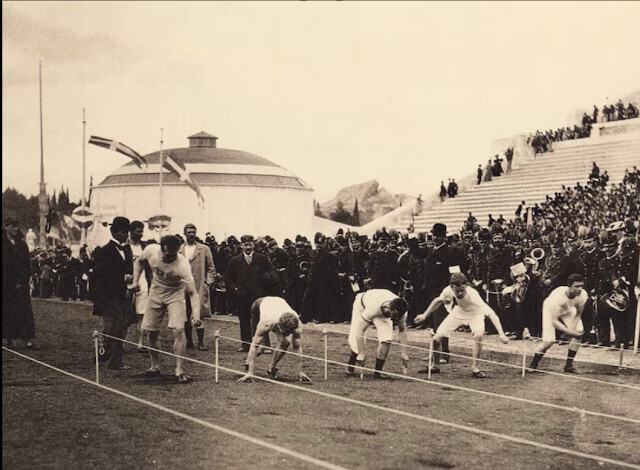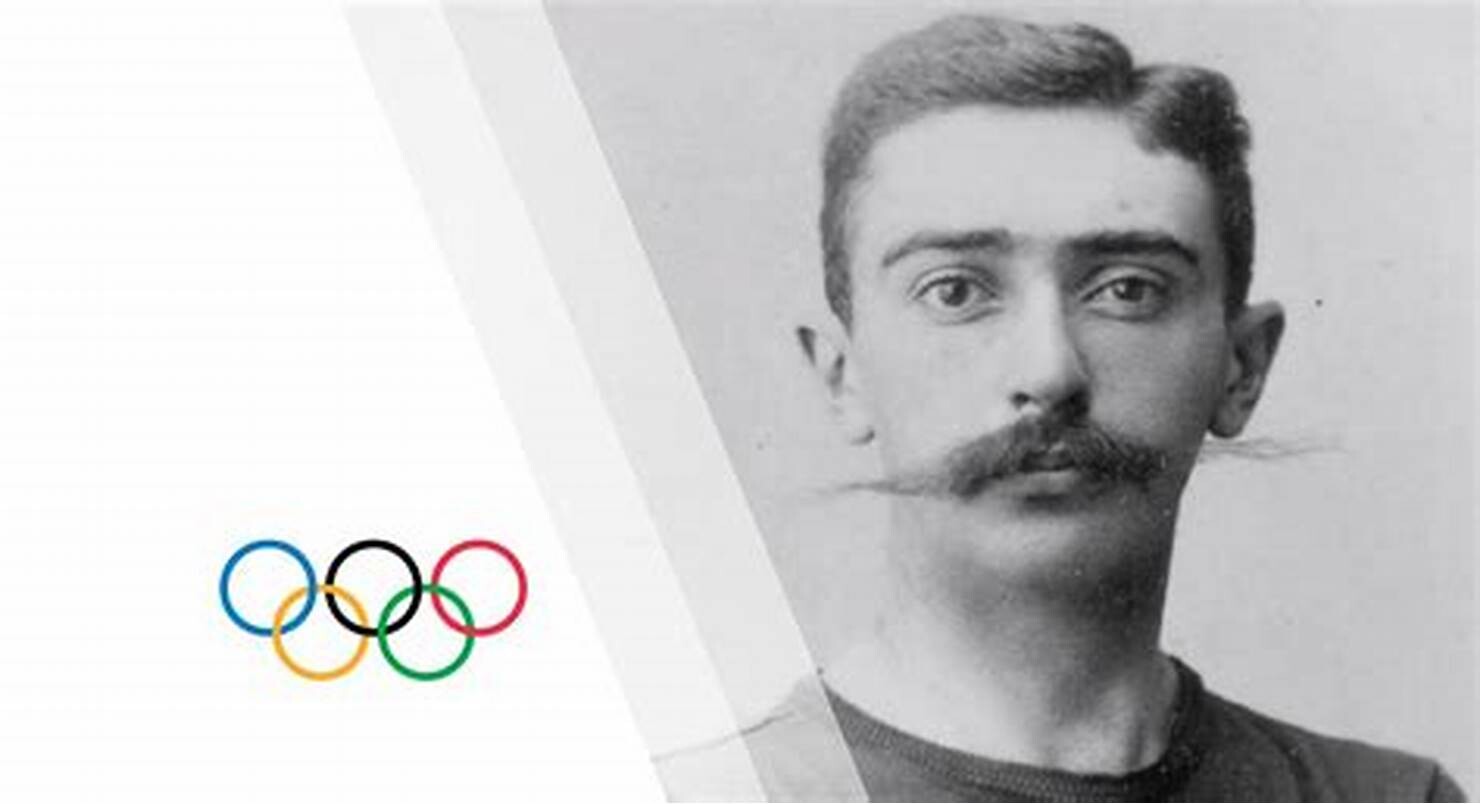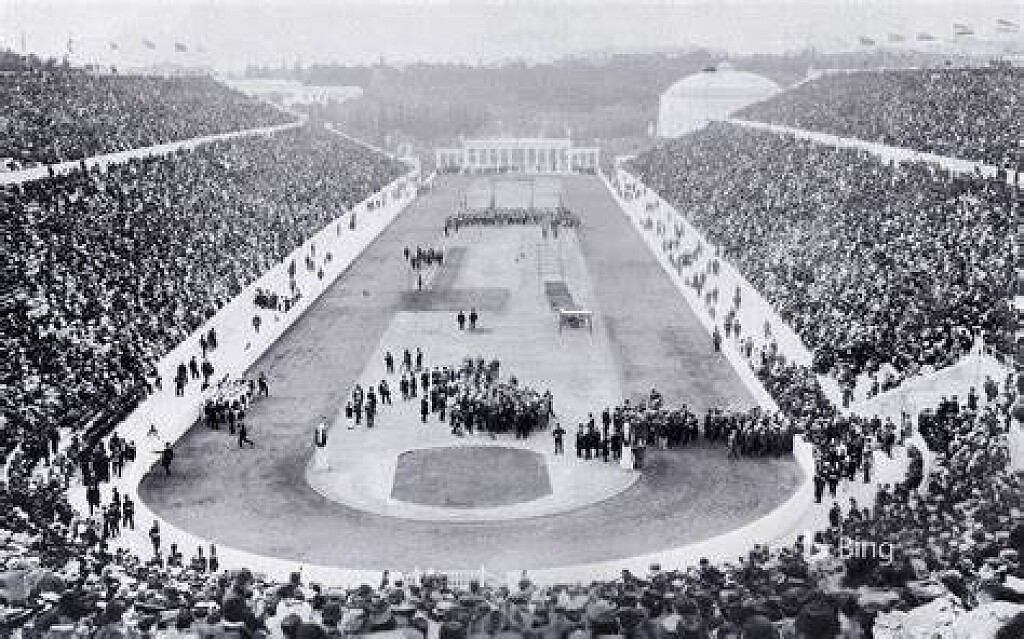Running News Daily
Running News Daily is edited by Bob Anderson. Send your news items to bob@mybestruns.com Advertising opportunities available. Train the Kenyan Way at KATA Kenya and Portugal owned and operated by Bob Anderson. Be sure to catch our movie A Long Run the movie KATA Running Camps and KATA Potato Farms - 31 now open in Kenya! https://kata.ke/
Index to Daily Posts · Sign Up For Updates · Run The World Feed
From Ancient Olympia to Paris 2024
Modern Olympic history is full of victories and defeats but along the way since the revival of the Olympics in 1896, we encountered geopolitics, a shift in women’s rights and the state of global affairs.
From Athens to Rio, in the last 125 years, the games have crossed five continents, added and removed events, resisted boycotts and were only canceled three times due to two World Wars.
In 1894, Pierre de Coubertin launched his plan to revive the Olympic Games, and in 1896 the first Games of the modern era were held in Athens
Origins of the Olympic Games
The history of the Games goes back around 3,000 years, to the Peloponnese in Ancient Greece. Sports contests organized at Olympia back then took place every four years and acquired the name Olympic Games.
The first written evidence of the official Games dates from 776 BC, when the Greeks began measuring time in Olympiads, or the duration between each edition of the Olympic Games.
The four-year interval between the Ancient Games editions was named an “Olympiad” and was used for dating purposes at the time: time was counted in Olympiads rather than years. They were held between August 6 and September 19 during a religious festival honoring Zeus.
The games were named after their location at Olympia, a sacred site located near the western coast of the Peloponnese peninsula in southern Greece.
The games included Chariot races – one of the oldest of Greek sports dated back to the Mycenean Period (1100 B.C) – consisting of 12 laps around a hippodrome (horse track) and 12 times in the opposite direction, with the length varying depending on where the event was held.
There was also kele (riders competing in horseback), footraces (running), wrestling, pentathlon – a five-event combination of long jump, running and wrestling – boxing, and lastly the pankration, which was a combined contest of boxing, wrestling and kicking.

Structure and Traditions of the Ancient Olympics
All free male Greek citizens were entitled to participate in the ancient Olympic Games, regardless of their social status. Orsippos, a general from Megara; Polymnistor, a shepherd; Diagoras, a member of a royal family from Rhodes; Alexander I, son of Amyndas and King of Macedonia; and Democritus, a philosopher, were all participants in the Games.
Married women were not allowed to participate in, or to watch, the ancient Olympic Games. However, unmarried women could attend the competition, and the priestess of Demeter, goddess of fertility, was given a privileged position next to the Stadium altar.
One of the things that is commonly argued about is the question of whether there were amateur athletes in the ancient Olympic games. Ancient Olympic athletes were neither amateur nor professional. The word athlete is a Greek word that means “one who competes for a prize” and is related to two Greek words, athlos meaning contest and athlon meaning prize.
Greek athletes competed for prizes at athletic festivals. Some of the prizes were symbolic, for instance the wreath of olive leaves at Olympia, and others were material prizes worth money, for instance bronze tripods, or amphoras filled with olive oil. There were also cash awards of 500 drachmai (considered to be a fortune) or getting an early pension plan by receiving a free meal every day.
The Significance of Competition
For the ancient Greeks, whose fiercely independent city-states were often at war with one another, athletic contests became a unifying, peacemaking force. During the Olympic games, all hostilities were suspended. City-states sent their best athletes to compete
Decline of the Ancient Olympics
After thousands of years of the Greeks and Romans gathering at the Olympia to celebrate the festival in honor of Zeus, in 393 AD, the Christian emperor Theodosius I forbade the celebration of pagan cults, which included the Games.
Nonetheless, the popularity of sports contests and cultural festivities continued in many Greek-influenced provinces of the Roman empire as late as the 6th century AD.
Following Theodosius’ order, pagan cults began to disappear, and the site of Olympia was abandoned. Earthquakes destroyed the structures and their ruins disappeared gradually under the earth and sand.
Revival of the Olympic Spirit
There were no longer any visible traces of the site. Thanks to the writings of ancient historians, the memory of the Games and their place in the Greek world was not totally forgotten. The Games were known to have existed, but the knowledge of their exact location had been lost.
In 1776, the English traveler Richard Chandler discovered the site of ancient Olympia. The principal research digs were carried out a hundred years later by German archaeologists.
Pierre de Coubertin in re-establishing the Olympics

Pierre de Coubertin is widely recognized as the founder of the modern Olympic Games and the International Olympic Committee. Although artefacts suggested that ancient Olympia was prosperous, Coubertin was not put off and in 1894 invited athletes and sports people alike to attend a sports conference where he suggested the revival of the Olympics.
It was then decided on 23 June 1894 that a modern Olympic game should be held every four years and that each game should take place in a different country. It was unanimously agreed that the first modern Olympic games should be held in Olympia Greece.
Pierre de Coubertin was instrumental in establishing many of the Olympic traditions that continue to this day – the five rings, the Olympic flag, the oath and motto. He produced many writings about sport and education – one of his most famous quotes is “The important thing in the Olympic Games is not winning but taking part. Just as in life, the aim is not to conquer but to struggle well.”
The Modern Olympic Games
The International Olympic Committee (IOC) was founded on the initiative of Pierre de Coubertin on 23 June 1894, during the Olympic Congress.
At first Pierre de Coubertin planned to discuss amateur sport during the congress, however, by the time the invitations for the delegates to gather at the Sorbonne University in Paris were being sent, he changed both the programme and the title of the congress.
The event, which was eventually called the “Congress on the Revival of the Olympic Games”, served as an opportunity for de Coubertin to present his proposal to revive the Olympic Games. And thus, the International Olympic Committee was founded.
The 1894 Sorbonne congress was attended by 79 participants from 12 countries and its Opening ceremony featured musical pieces, songs, and poems.
First Modern Olympics (1896)
The first celebration of the modern Olympic Games took place in its ancient birthplace - Greece. The Games attracted athletes from 14 nations, with the largest delegations coming from Greece, Germany, France and Great Britain.
Due to its historical significance, the Greek hosts wanted to win the marathon above all else. Spyridon Louis set off from the city of Marathon and took the lead four kilometres from the finish line and, to the joy of the 100,000 spectators, won the race by more than seven minutes.
Hungarian swimmer Alfréd Hajós won the 100m and the 1200m events. For the longer race, the swimmers were transported by boat out to sea and left to swim the required distance back to shore. Hajós later confessed that his “will to live completely overcame [his] desire to win”.
On 6 April 1896, the American James Connolly won the triple jump to become the first Olympic champion in more than 1,500 years. He also finished second in the high jump and third in the long jump.
Evolution of the Games
The 1900 Summer Games in Paris took place from 14th May to 28th October and were held alongside the Exposition Universelle International which was staged to celebrate the achievements of the past century – the diesel engine (running on peanut oil), escalators, talking films and the telegraphone (the first magnetic audio recorder) were first displayed there.
Held as part of the Paris World’s Fair, the 1900 Games span five months, with 20 events and 24 countries represented. Because events are so spread out, many athletes and officials don't even realize they are competing in the Olympics.
But the 1900 Games introduce several new sports, including rugby, golf, cricket and croquet (the only year croquet is played), as well as equestrian events, archery and soccer. Swimming races take place in the Seine River and five sports—tennis, polo, soccer, rowing and tug of war—include athletes from differing nations playing on the same teams.
It’s also the first-time women participate, with 22 competing (along with 975 men). American Alvin Kraenzlein shines during the Paris Games when he takes gold in four track and field events.
Notable Olympic Events and Milestones
The Olympic flame, a symbol of peace and unity, was first introduced at the Berlin Games in 1936. The torch relay, which carries the flame from Olympia, Greece, to the host city, has become a cherished tradition. This relay not only symbolizes the connection between ancient and modern Games but also promotes the spirit of the Olympics across various nations
The concept of the Olympic Village was first realized during the 1924 Paris Games. This innovation provided a communal living space for athletes, enhancing the experience and fostering hospitality among competitors from around the world. The Village has since become a staple of the Olympic experience, allowing athletes to live and interact together during the Games
The Cold War era saw significant political tensions affecting the Olympics, leading to boycotts of the 1980 Moscow Games by the United States and the 1984 Los Angeles Games by the Soviet Union and its allies.
In response to various global challenges, including the COVID-19 pandemic, the Olympics have shown resilience by adapting their schedules and formats. The Tokyo 2020 Games were postponed to 2021, marking a significant moment in Olympic history as they navigated unprecedented circumstances while still aiming to uphold the Olympic spirit
A Symbol of Peace
As the world looks forward to future Olympic Games, including Paris 2024, we mustn’t forget that the Olympic Games have long served as a powerful symbol of peace, unity, and athletic excellence, transcending cultural and national boundaries. Their legacy is rooted in a philosophy that combines sport with education and cultural exchange, promoting values such as friendship, solidarity, and fair play.
by Juliana Alexandra
Login to leave a comment
Paris 2024 Olympic Games
For this historic event, the City of Light is thinking big! Visitors will be able to watch events at top sporting venues in Paris and the Paris region, as well as at emblematic monuments in the capital visited by several millions of tourists each year. The promise of exceptional moments to experience in an exceptional setting! A great way to...
more...




